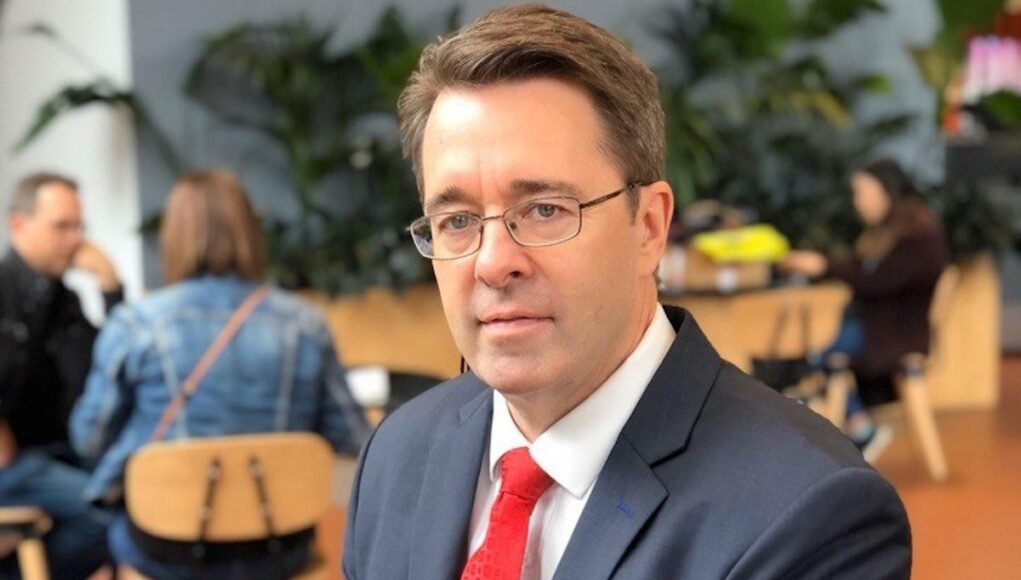As technology rapidly advances and industries change across the globe, Project Management Offices (PMOs) have become key parts of organizations.
Far from their traditional roles as mere administrative support, PMOs now act as strategic enablers, driving projects that are integral to organizational success.
To better understand the evolving role of PMOs and how organizations can leverage them for greater impact, I asked Dr. Robert Joslin to share his insights.
Dr. Joslin is a leading management consultant/instructor and the founder of the Association of International Project Management Officers (AIPMO). He, as AIPMO and his team, are also ManageMagazine co-creative partners and old friends of the house. I was therefore excited to draw on the well of knowledge gathered in the field of PMO over a long career.
With over 35 years of experience in managing large-scale transformations and a deep commitment to advancing the field of PMOs and project portfolio management (PPM), Dr. Joslin here shares his insights on how PMOs can stay relevant, the challenges they face, and the future of project management.
Interview with Dr. Joslin about Complexities of a PMO
Vibeke Vad Baunsgaard (in the following VVB): Dr. Joslin, you’ve worked extensively with organizations around the world to enhance their PMO and project portfolio management (PPM) capabilities. What are some of the biggest challenges PMOs face today, and how can they overcome them?
Dr. Robert Joslin: One of the primary challenges PMOs face today is ensuring their alignment with the strategic goals of the organization. This alignment isn’t just a matter of ensuring projects are completed on time and within budget—it’s about integrating the PMO into the organization’s broader strategic framework.
For example, a PMO needs to understand the company’s long-term objectives and tailor its processes to support those goals. This requires more than just managing projects effectively; it involves strategic planning, governance, and continuous performance monitoring to ensure that the PMO’s work contributes directly to the organization’s success.
PMOs must stay ahead of trends such as Artificial Intelligence (AI), data analytics, and digital transformation
Another challenge is the ability to adapt to the rapid technological changes that are reshaping the industry. PMOs must stay ahead of trends such as Artificial Intelligence (AI), data analytics, and digital transformation. By embracing these technologies, PMOs can provide more accurate forecasts, optimize resource allocation, and automate routine tasks, which frees up project managers to focus on strategic decisions.
VVB: The role of PMOs has evolved significantly over the years. How do you see this role changing in the future?
Dr. Robert Joslin: The role of PMOs has indeed evolved from being administrative entities to becoming central players in an organization’s strategic execution. As businesses face increasing uncertainty and complexity, the need for PMOs to be agile, innovative, and deeply integrated (embedded) into the organization’s fabric has never been more important. In the future, I believe PMOs will continue to evolve into hubs of innovation and insights and then drivers of change within organizations.
PMO’s must evolve beyond managing traditional project portfolios to become catalysts for innovation by integrating emerging technologies and methodologies
PMOs must evolve beyond managing traditional project portfolios to become catalysts for innovation by integrating emerging technologies and methodologies. A growing trend is the involvement of PMOs in digital transformation and AI initiatives, which demands a comprehensive understanding of technological advancements and strategic business alignment.
_____
READ ALSO: How to Deal with Uncertainty and Drive Success Based on Mastering Ambiguity
_____
Additionally, sustainability, as outlined by the UN’s Environmental, Social, and Governance (ESG) criteria, is becoming a critical topic in management discussions. As ESG continues gaining traction, PMOs must deepen their understanding of its implications. Over time, ESG considerations will shape PMO strategies and be embedded into the core principles and objectives that guide project and portfolio management.
This shift requires PMOs to have a more diverse skill set, including technology, data, complex problem-solving, strategic planning, and change management expertise.
VVB: What practical advice would you give to organizations looking to enhance the performance of their PMOs?
Dr. Robert Joslin: My advice is to start with a clear understanding of the organization’s strategic objectives and ensure that the PMO’s goals are aligned with these. This means establishing a robust governance framework that supports the PMO’s objectives and ensures accountability at all levels. It’s also essential to invest in the right people.
A successful PMO requires a team with a mix of skills, including project management experience, strategic thinking, consulting and problem solving and the ability to manage change
A successful PMO requires a team with a mix of skills, including project management experience, strategic thinking, consulting and problem solving and the ability to manage change. These individuals need to be not just technically competent but also capable of leading teams and driving organizational change.
Another key factor is the continuous development of the PMO’s capabilities. The project management landscape is constantly evolving, so PMOs need to stay ahead by adopting new frameworks and methodologies, fostering a culture of innovation, and encouraging continuous learning within the team. This could include regular training sessions, certifications, and workshops that keep the team up to date with the latest industry trends.
VVB: You’ve mentioned the importance of integrating new technologies into PMO operations. Can you elaborate on how these technologies can enhance PMO performance?
Dr. Robert Joslin: Certainly. Technologies such as Artificial Intelligence (AI), Business Intelligence (BI) tools, and automation are revolutionizing how PMOs operate.
AI, for example, can be used to predict project outcomes by analyzing historical data and identifying potential risks before they become issues. This allows project managers to take proactive measures, reducing the likelihood of project failure.
BI tools like Tableau and Power BI are also significant in helping PMOs make data-driven decisions. These tools allow PMOs to visualize data, track key performance indicators (KPIs), and generate reports that provide actionable insights. By leveraging these technologies, PMOs can improve their efficiency while also enhance their strategic value to the organization.
However, it’s important to remember that technology is only as good as the people using it. Therefore, it’s essential that PMO staff are trained to use these tools effectively and that the organization has the right infrastructure in place to support their use.
VVB: What do you see as the future of PMOs, and how can organizations prepare for it?
Dr. Robert Joslin: The future of PMOs lies in their ability to be agile, innovative, and deeply integrated into the organization.
As businesses continue to face uncertainty and rapid change, PMOs will need to be more flexible and responsive. This means being able to pivot quickly to meet new challenges and adapting their methodologies to suit the needs of the organization.
_____
SEE ALSO: Setting Up a Project Management Office (PMO) from the Ground Up: Best Practices and Lessons Learned
_____
Many of the people who work today in PMOs in administrative or data collection positions will not be sought after, and these types of roles will be automated and replaced with ones that understand data and information and solve complex problems. However, the PMO professionals of tomorrow will still need to have high emotional intelligence and be well-versed in politics because of the level they will be operating at.
The future of PMO’s lies in their ability to be agile, innovative, and deeply integrated into the organization
Organizations can prepare for this by fostering a culture of adaptability within their PMOs. This includes investing in ongoing education and training for their teams, staying abreast of the latest trends and developments in project management, and encouraging cross-functional collaboration. By doing so, PMOs can continue to add value and help drive organizational success.
VVB: What are some of the most common challenges organizations face when establishing a PMO, and how can they overcome these barriers?
Dr. Robert Joslin: Establishing a PMO comes with its set of challenges. One of the primary challenges is resistance to change.
Stakeholders may be hesitant to adopt new processes or fear that the PMO will disrupt existing workflows. Overcoming these obstacles requires effective communication and change management strategies. PMO leaders need to clearly articulate the benefits of the PMO and how it will improve project outcomes. It’s also important to involve stakeholders in the process from the beginning, ensuring they have a say in how the PMO is implemented.
Another challenge is ensuring that the PMO has the right mix of skills within the team. A successful PMO should include individuals with a combination of technical expertise, strategic insight, and leadership abilities. It’s not enough to simply appoint a project manager to lead the PMO; the team needs to be well-rounded and capable of tackling the diverse challenges that come with managing complex initiatives.
_____
READ ALSO: How to Align Your Project Management Office (PMO) with your Organization’s Strategy
_____
VVB: Can you share some real-life examples of how PMOs have successfully driven organizational change?
Dr. Robert Joslin: I’ve seen numerous examples where PMOs have been instrumental in driving significant organizational change.
For instance, in one organization, the PMO played a key role in a company-wide digital transformation initiative. The PMO was responsible for managing the project portfolio, ensuring that all projects were aligned with the company’s strategic objectives, and coordinating efforts across different departments. The result was a successful transformation that not only improved operational efficiency but also positioned the company as a leader in its industry.
Another example is a PMO that was tasked with managing a large-scale infrastructure project. The PMO’s role was to ensure that the project stayed on track, within budget, and met all regulatory requirements.
Through careful planning, risk management, and stakeholder engagement, the PMO was able to deliver the project on time and under budget, resulting in significant cost savings for the organization.
VVB: Let’s shift focus a bit. What motivated you to establish AIPMO, and how does it address the challenges you’ve mentioned?
Dr. Robert Joslin: My motivation for establishing AIPMO stemmed from a deep concern for the impact that failed projects can have on organizations and the people within them. Over the years, I’ve seen how poorly managed projects can lead to significant financial losses, strained relationships, and in extreme cases, even personal tragedies.
For instance, I witnessed a situation where the CEO and CFO of a major insurance company took their own lives due to the stress and pressure caused by suboptimal project management practices. This experience reinforced my belief that there had to be a better way to manage projects and support project managers.
I’ve seen how poorly managed projects can lead to significant financial losses, strained relationships, and in extreme cases, even personal tragedies
AIPMO was founded to address these challenges by providing structured frameworks for PMO management that is grounded in research and leading practices. Our mission is to advance the theory, design, and implementation of high-performing PMOs, empowering PMO professionals to create sustainable and measurable organizational impact. We do this by developing integrated frameworks and models that are continuously updated with the latest industry findings, ensuring that PMOs are equipped to handle the complexities of modern project management.
VVB: How does AIPMO stand out from other PMO certification authorities?
Dr. Robert Joslin: What sets AIPMO apart is our foundational philosophy, which we call ‘ab imis fundamentis’, meaning ‘rebuilding from the foundations.’
This philosophy is reflected in our approach to professional certification, where we ensure that our programs are grounded in the latest empirical research and continuously updated with new findings.
Unlike other organizations that rely on outdated standards, AIPMO prioritizes leading-edge practices and integrates them into our certification programs. Our courses are designed not just to impart knowledge but to ensure that participants can apply what they learn in real-world scenarios.
Moreover, AIPMO certifications are unique because of our commitment to practical, hands-on learning. We incorporate real-case studies and require participants to engage with actual challenges from their work environments. This practical application is assessed alongside theoretical knowledge, ensuring that those who are certified are not only well-versed in the principles but are also adept at implementing them in practice.
All-in-all, we aim to offer a comprehensive approach to certification that helps to build confidence and competence among PMO professionals, setting AIPMO apart as a forward-thinking and impactful certification authority.
VVB: What experiences or key moments in your career have shaped your approach to PMOs and led to the founding of AIPMO?
Dr. Robert Joslin: My journey in project management has been defined by several key moments that deeply influenced my perspective and approach. Early in my career as a chartered engineer, I was involved in large-scale infrastructure projects where I witnessed firsthand the impact of effective project management on organizational success.
This experience made me realize the importance of having a structured approach to managing projects, which eventually led me to transition into a management consultant role, where I could influence broader strategic decisions.
One particularly defining moment was when I encountered a series of failed projects that had devastating effects—not just financially, but on the well-being of the individuals involved. It was clear to me that many of these failures could have been avoided with better-designed PMOs. This realization motivated me to delve deeper into research, ultimately leading to the development of frameworks and methodologies that could prevent such outcomes.
My passion for advancing PMO and PPM practices led me to establish the Association of International Project Management Officers (AIPMO) and the PhD program at Alma Mater Europaea – ECM, focusing on ‘Strategy, Project Leadership, and PMO Management.’
Through AIPMO, I’ve been able to channel my experiences into creating a set of frameworks, methods, and publications that have been adopted globally, including the renowned PMO Strategic Lifecycle Framework. Today, my work continues to be driven by the desire to empower PMO professionals and organizations to achieve sustainable and measurable success.
__
ManageMagazine and I, Vibeke Vad Baunsgaard, PhD., would like extend our heartfelt appreciation to Dr. Robert Joslin for sharing expertise with us and ManageMagazine readers.








